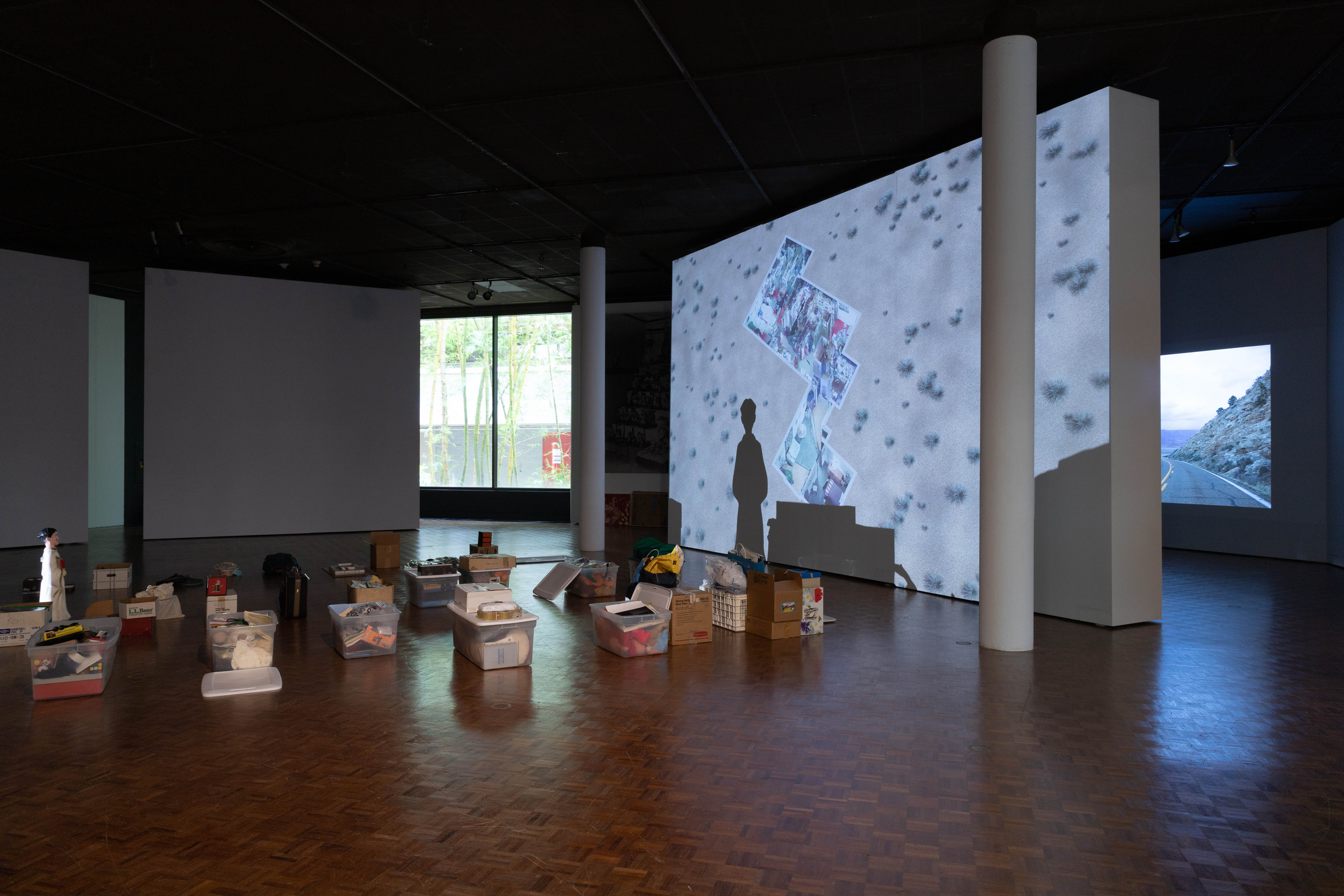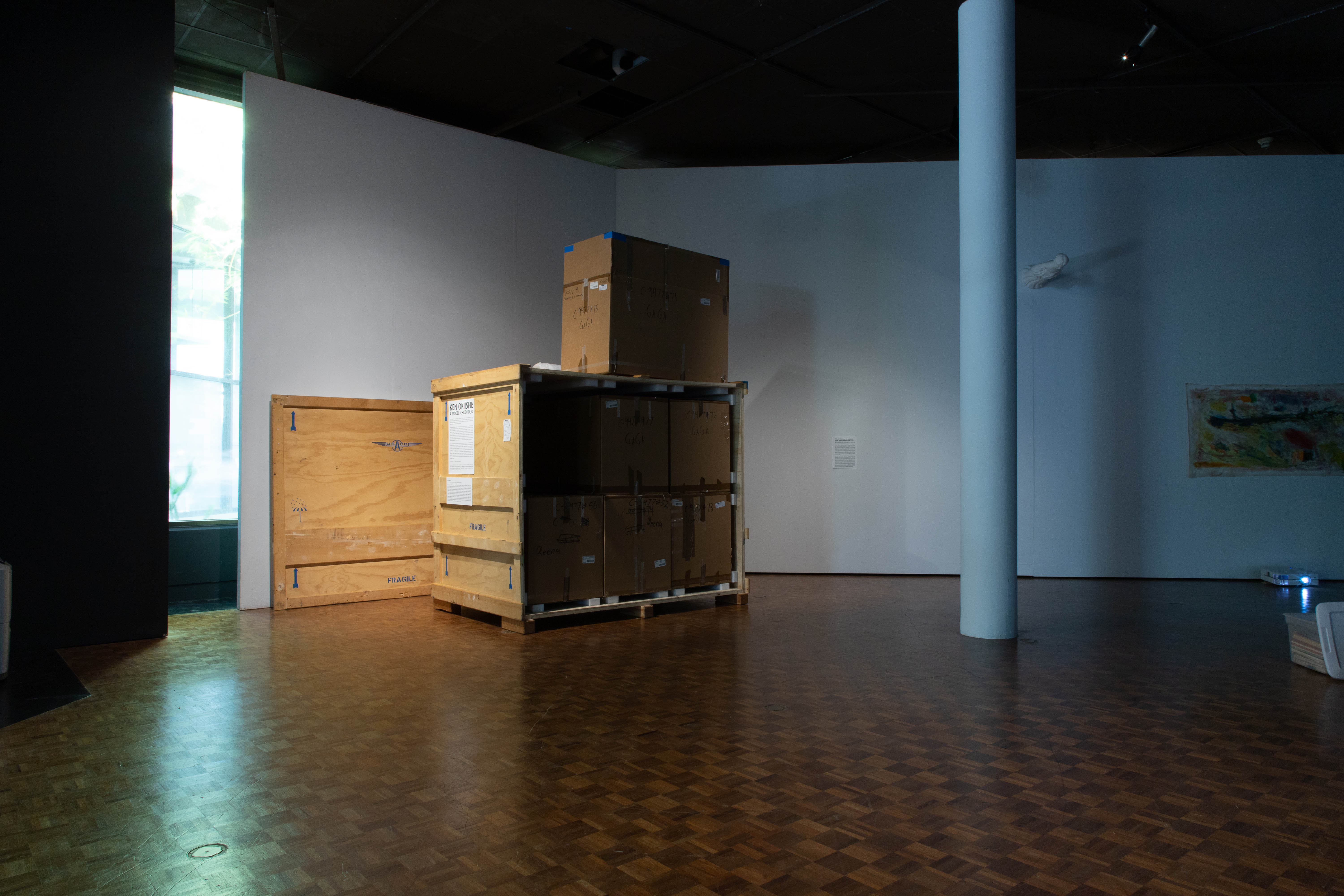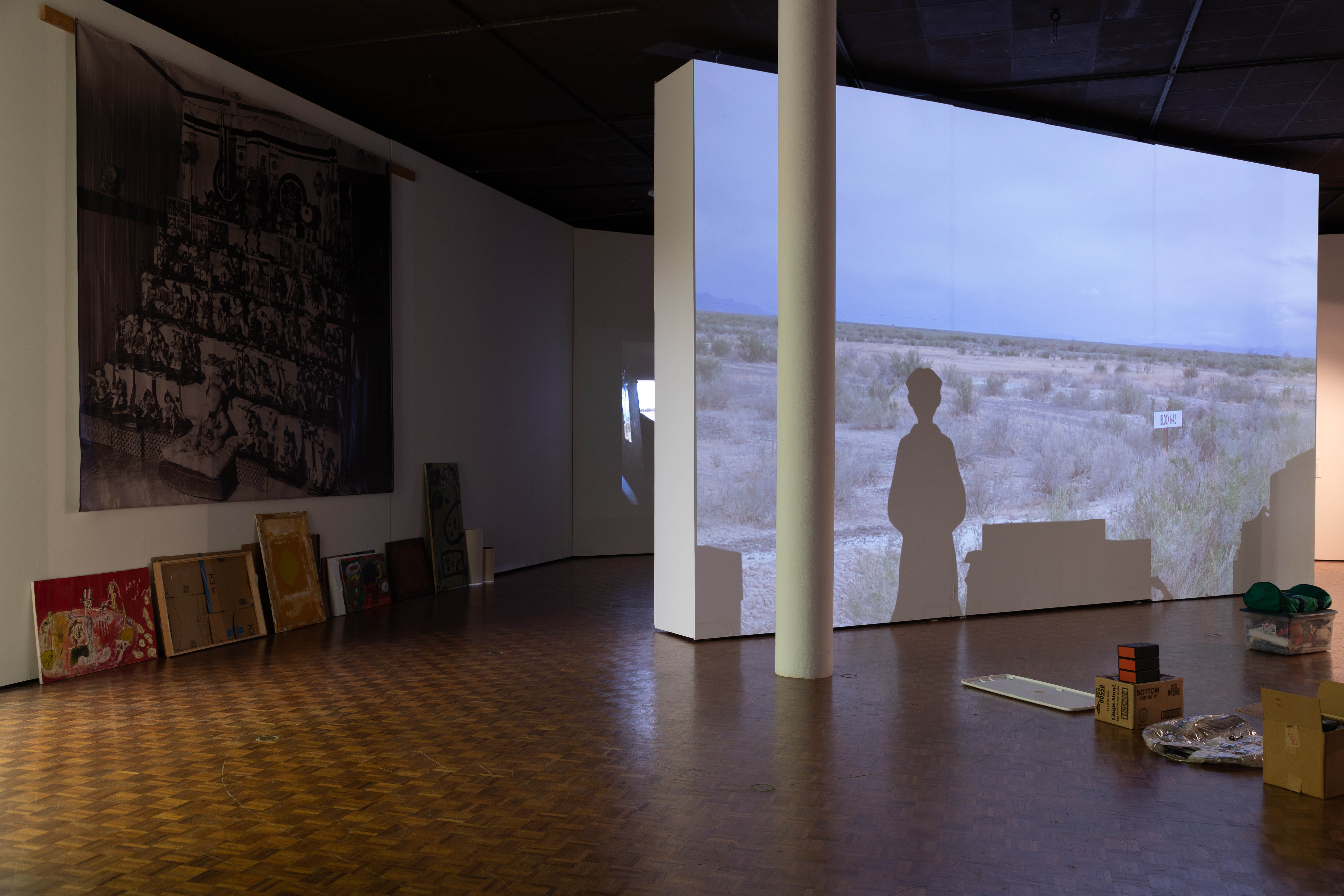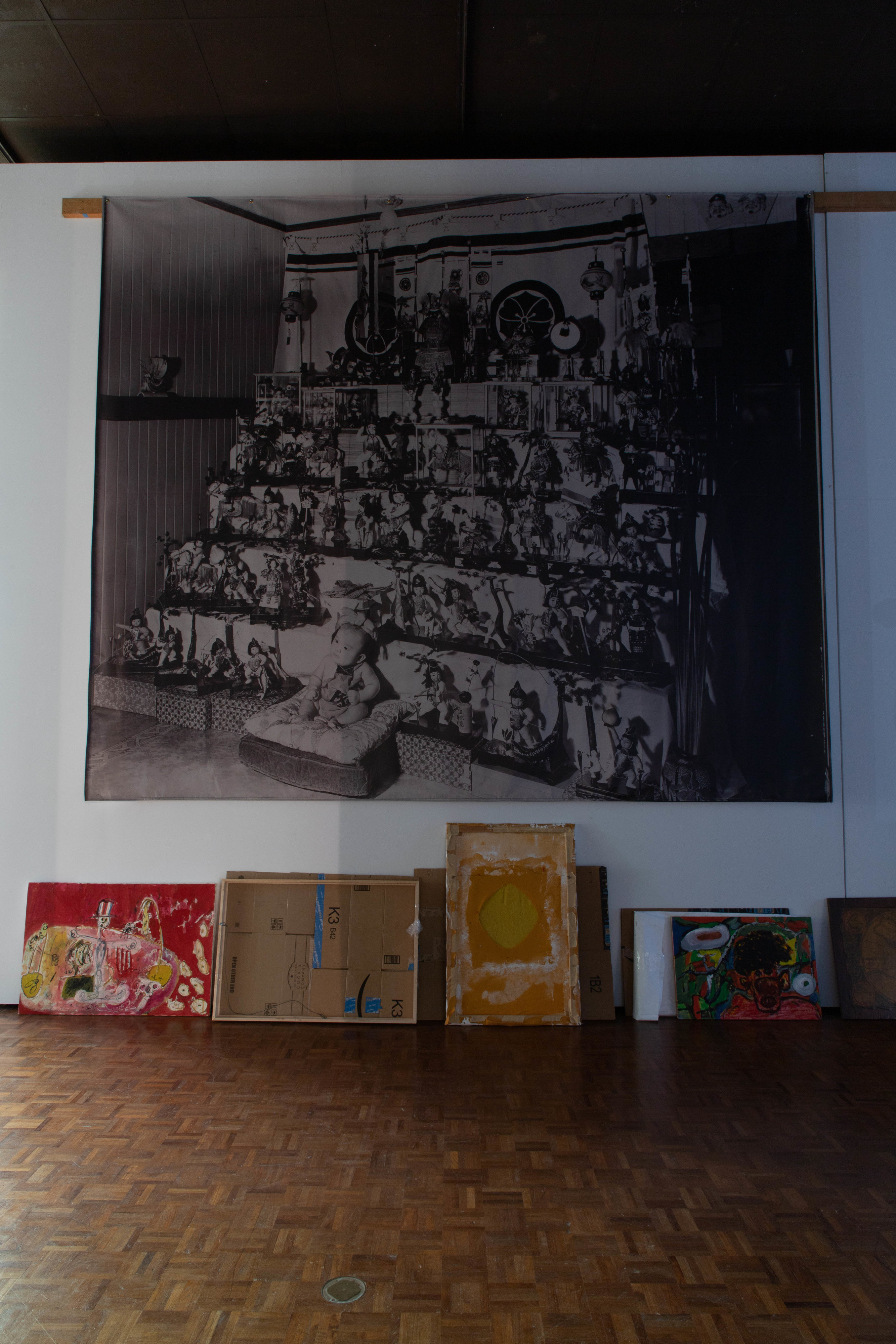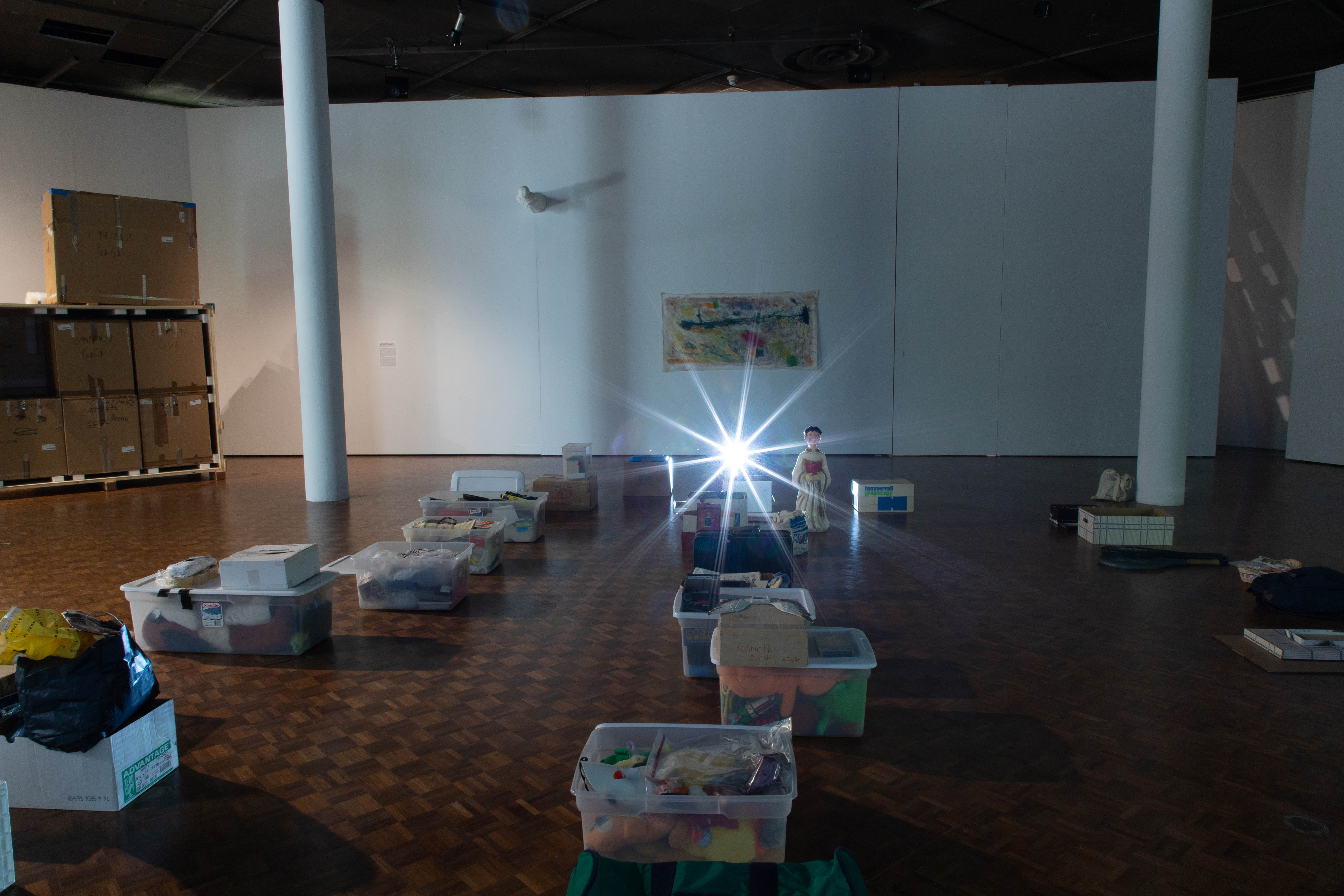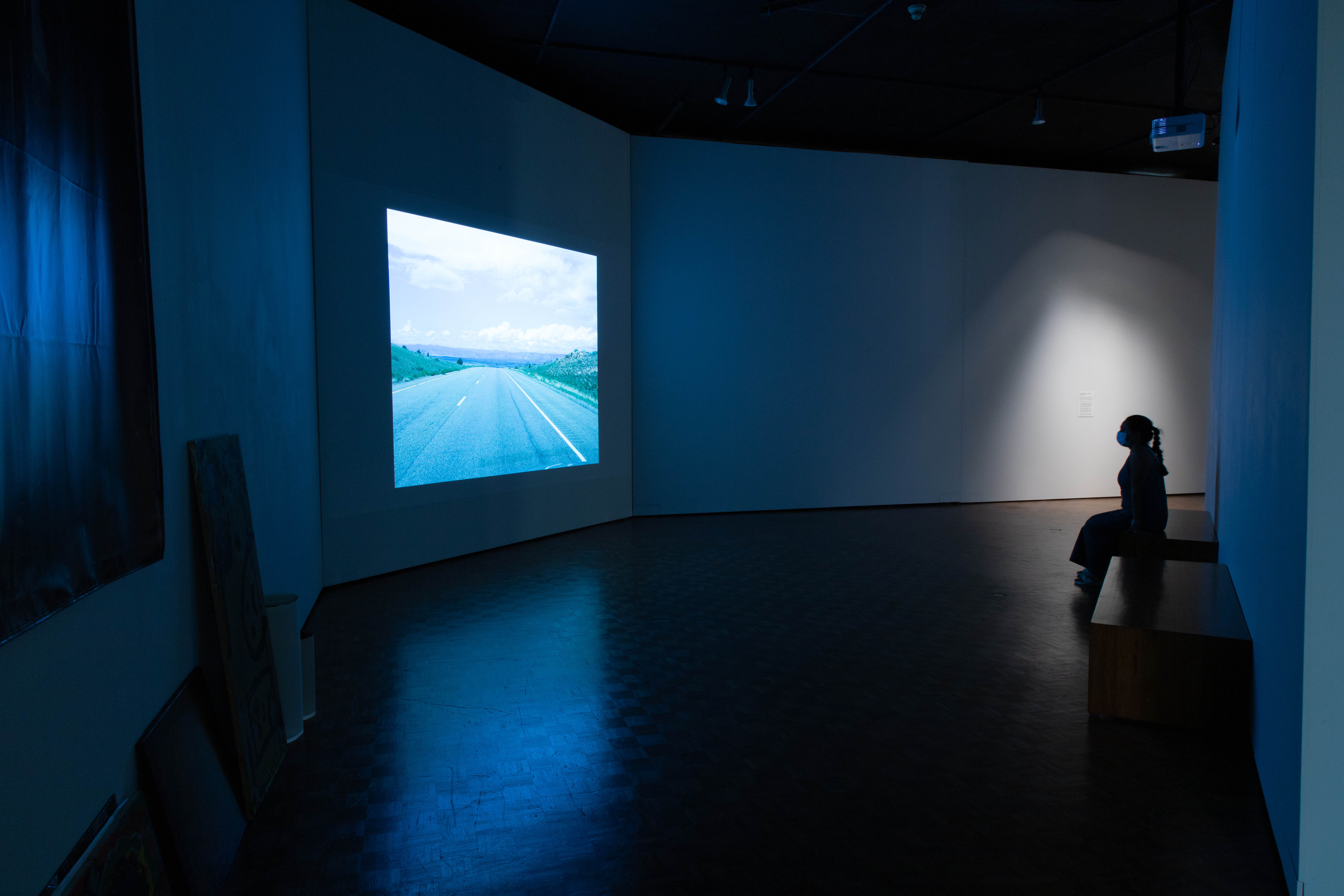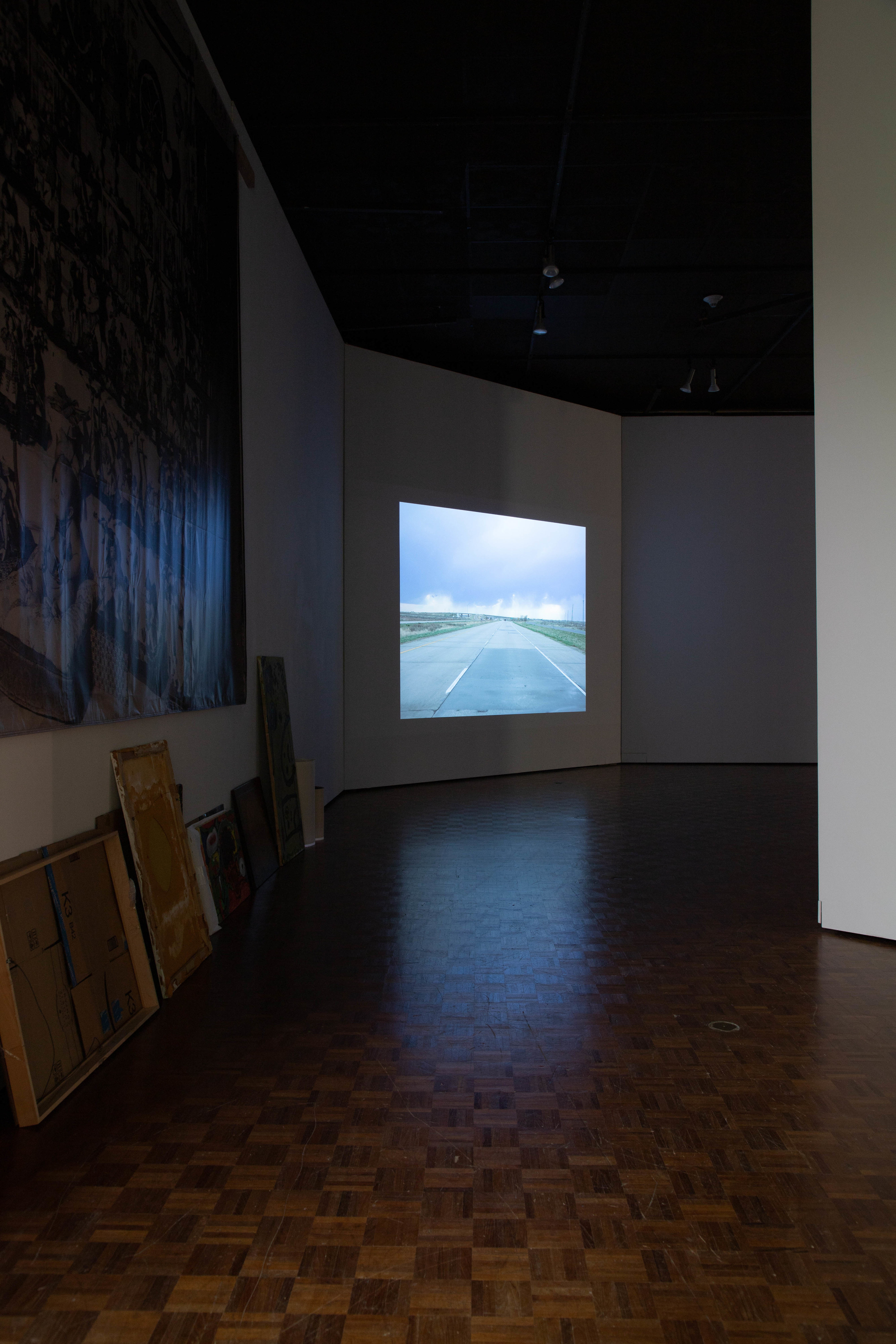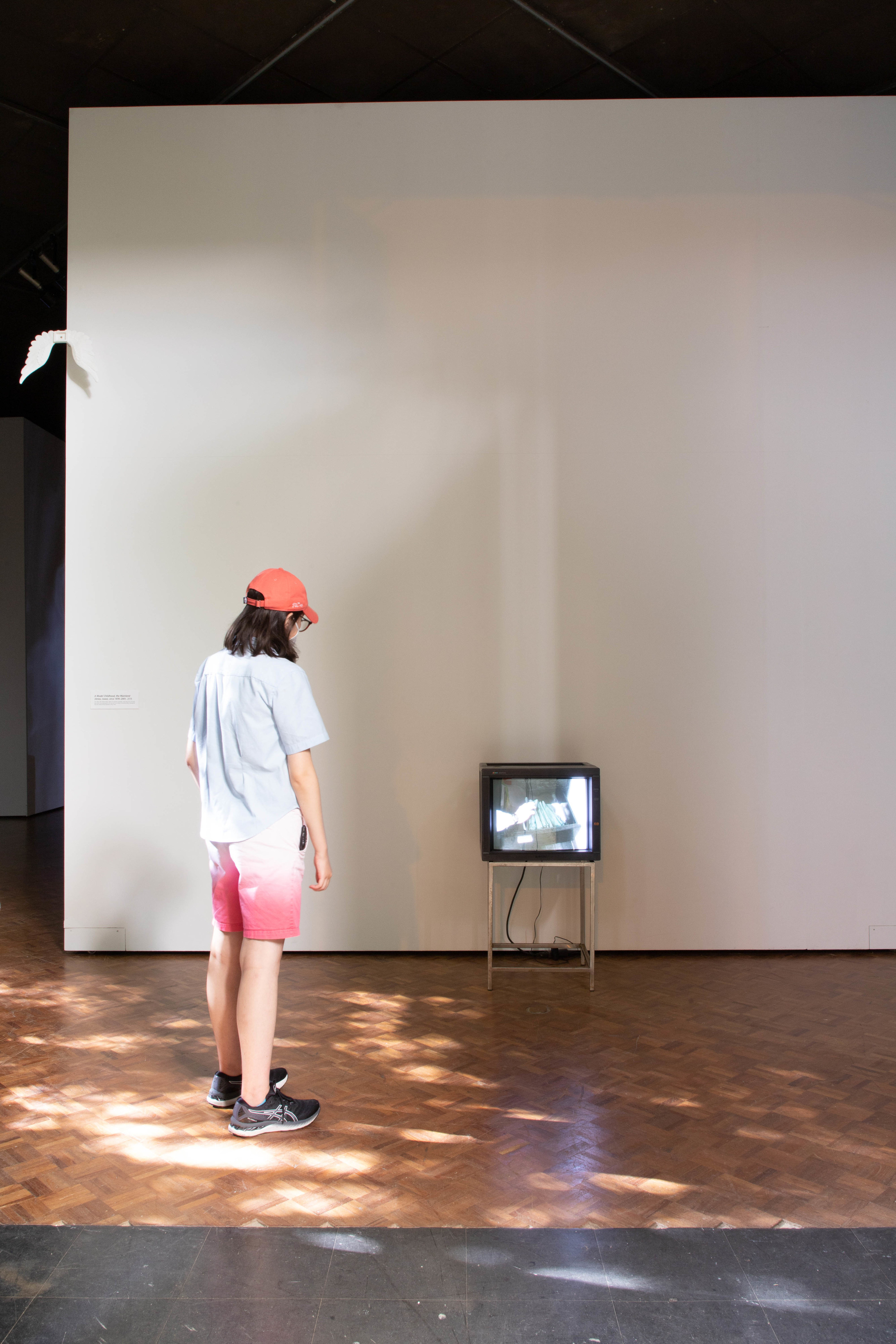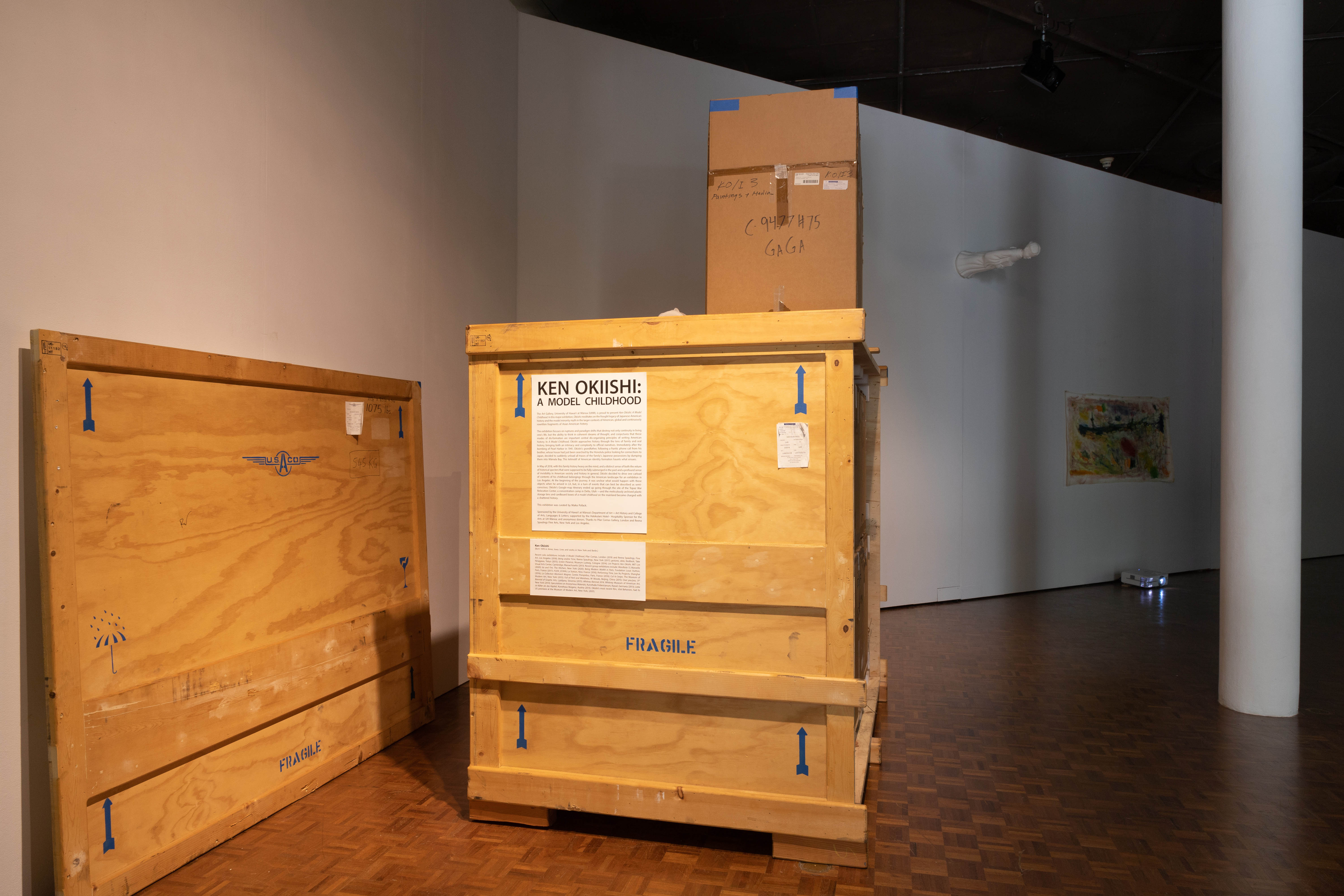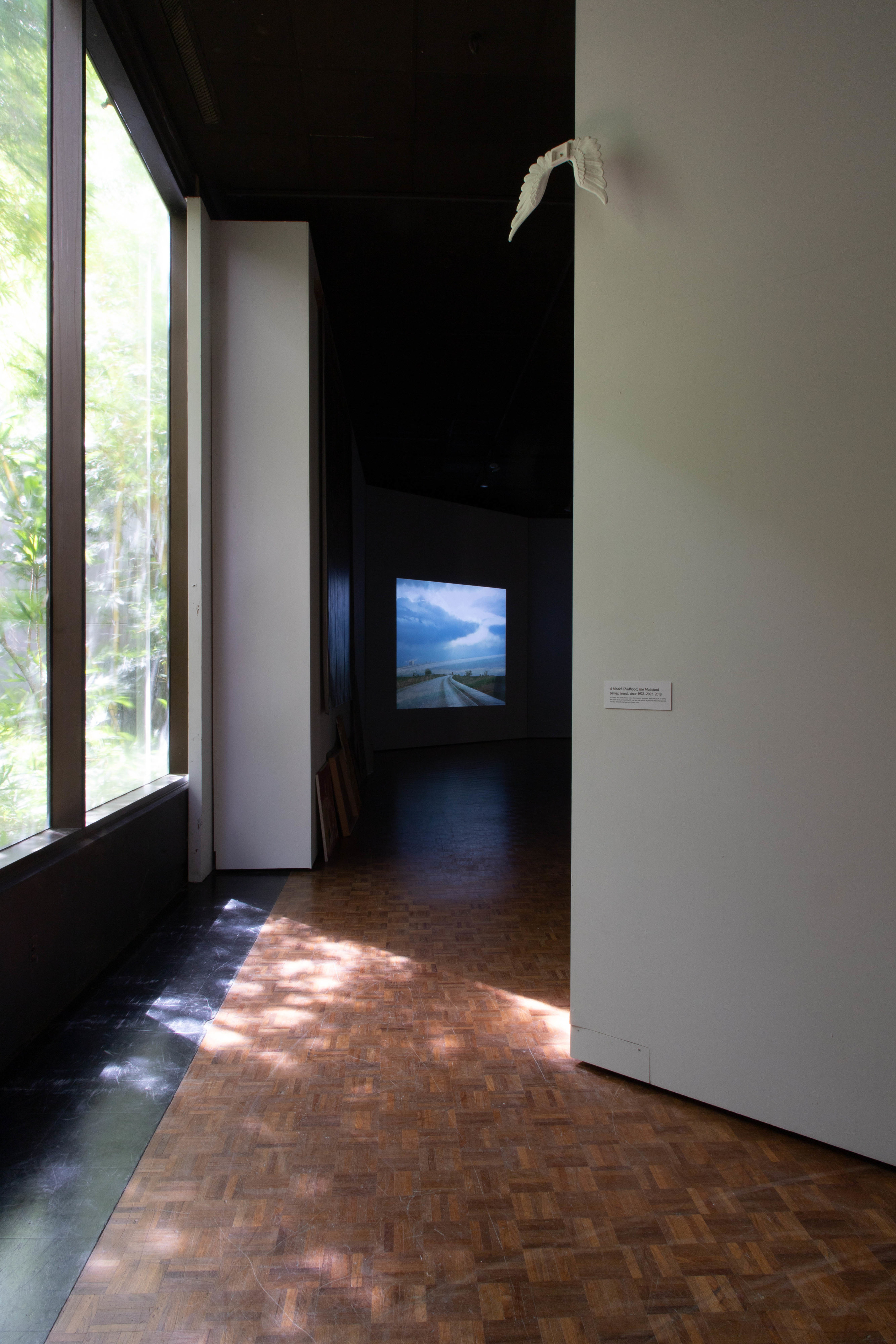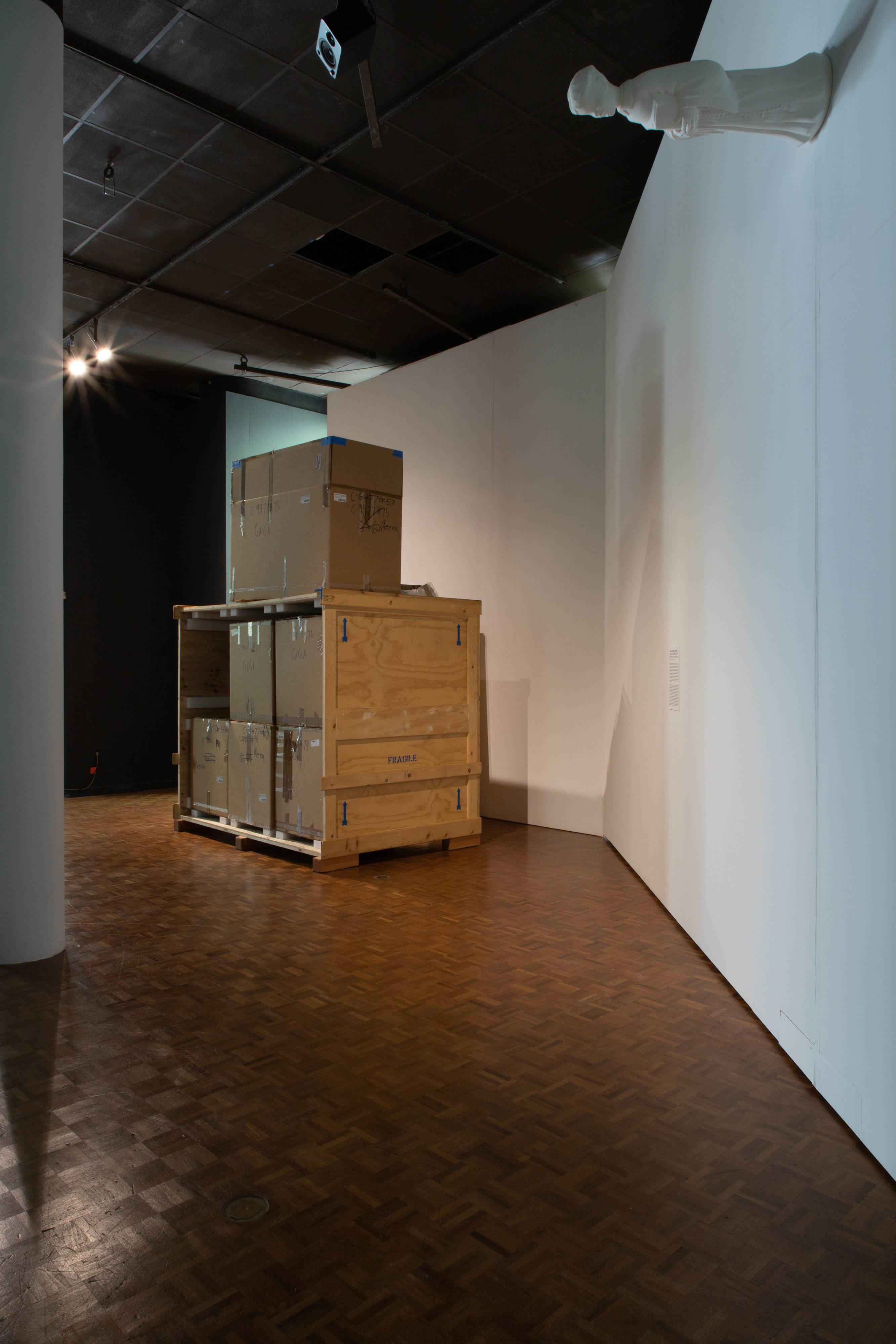Overview
The Art Gallery, University of Hawai‘i at Mānoa (UHM), is proud to present Ken Okiishi: A Model Childhood. In this major exhibition, Okiishi meditates on the fraught legacy of Japanese-American history and the model minority myth in the larger contexts of American, global and continuously rewritten fragments of Asian-American history.
The Art Gallery, University of Hawai‘i at Mānoa (UHM), is proud to present Ken Okiishi: A Model Childhood. In this major exhibition, Okiishi meditates on the fraught legacy of Japanese-American history and the model minority myth in the larger contexts of American, global and continuously rewritten fragments of Asian-American history.
The exhibition focuses on ruptures and paradigm shifts that destroy not only continuity in living one’s life, but the ability to think in coherent streams of thought, and conjectures that these modes of dis-formation are important central dis-organizing principles of writing American history. In A Model Childhood, Okiishi approaches history through the lens of family and oral history, bringing both an intimacy and complexity to official narratives of the time period. Immediately after the bombing of Pearl Harbor in 1941, Okiishi’s grandfather, following a frantic phone call from his brother, whose house had just been searched by the Honolulu police looking for connections to Japan, decided to suddenly unload all traces of the family’s Japanese possessions by dumping them into Māmala Bay. This leitmotif of American identity formation haunts what ensues.
The exhibition tells this story in poetically interlocking parts, including: A display of the totality of Okiishi’s childhood belongings (1978–2001), meticulously archived by his parents, who had settled in the university town of Ames, Iowa in the late 1950s; A video, projected on and through this childhood archive, which shows a view of walking through the ruins of the Topaz War Relocation Center, a concentration camp in Delta, Utah; A video showing a forensic scan of the basement of Okiishi’s family home set into a desert landscape, documenting the family’s basement archive before the removal of the section dedicated to Ken’s childhood; A family history video for insurance purposes, made by the artist’s mother, documenting every object in the Okiishi household circa 2009; A large banner made from a photograph of a Boys’ Day memento from 1940—Okiishi’s father as an infant, posed amid fifty Japanese dolls depicting the life of a warrior which were thrown into the ocean upon the threat of internment a year later.
Finally, a photographic slideshow of Okiishi’s cross-country trip in 2018, with more than 300 photographic images, shows a process whereby the modes landscape and road-trip photography are recoded via an eye that no longer sees the ideological function of those modes of image production as related to American expanse and freedom.
As Okiishi says of the work, “Everyone suffers from this history that has never been properly worked through and it continues to be played out on the faces and bodies of all Asian Americans up to and including in the present. Visiting the site that was held over my father’s generation (children at the time, carried through into adult subject formation) as the threat of non-compliance to strict and narrow parameters of being a good American, in the most violent form of that idea, punctured the fiction of power in the political moment when its real possibility of reinvigorated methods was becoming all too real in that inescapable sense of knowing but unable to do anything other than witness and survive.”
University of Hawaii at Mānoa
2535 McCarthy Mall Rm 144, Honolulu, HI 96822, United States

